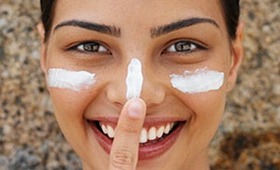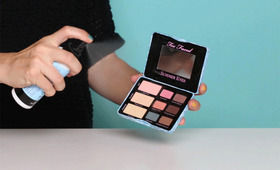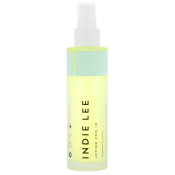
Almost every skincare label namedrops antioxidants–so they must be good, right? The answer is yes, but there’s a lot more to them than you’d think. Ahead, we demystify this ubiquitous ingredient and tackle the question: why are antioxidants such a big deal?
What are antioxidants and what do they do?
Antioxidants are substances that can prevent or slow down damage to skin cells caused by free radicals. Okay, cool—but what are free radicals? Free radicals are unstable molecules produced naturally by our cells when they have to deal with stressors, both internal (like inflammation) and external (like smoking or UV exposure). Because they’re unstable, they try to bind to healthy skin cells, which can damage them. So antioxidants are helpful in skincare because they neutralize the free radicals that cause visible damage to skin cells.
What are the benefits of antioxidants?
By definition, antioxidants neutralize free radicals to protect your skin from damage. By applying antioxidants in your skincare products, you’re helping to prevent the visible signs of skin damage: wrinkles, fine lines, sagging, dark spots, acne scars, and uneven tone, to name a few. But here’s the thing—there are hundreds of types of ingredients that are classified as antioxidants. Many have extra benefits, like brightening and soothing inflammation.
What’s the best antioxidant?
Because there are so many different types of antioxidants out there, the best antioxidant for you really depends on your personal needs. Some antioxidants can also help fade dark spots and discoloration. Some antioxidants are also really good at calming redness. Let’s look at a few heavy-hitters, shall we?
Polyphenols are micronutrients found in plants such as green tea and grapes. Not only do they combat free radicals, they also have a strong anti-inflammatory effect, making them good for anyone struggling with redness, irritation or acne.
Our pick: Caudalie Premier Cru The Serum, boscia Matcha Magic Super-Antioxidant Mask
Vitamin A (aka retinol) is an antioxidant that has been shown to stimulate collagen production and accelerate cell renewal—so yeah, it’s the gold standard for smoothing fine lines and wrinkles as well as promoting an even skin tone.
Our pick: LIXIRSKIN Night Switch Retinol 1%, Sunday Riley A+ High Dose Retinol Serum
Vitamin E can be found in many skincare products, and for good reason. Aside from its antioxidant properties, vitamin E is known to help skin heal and renew itself. Those with dry, rough or damaged skin might want to give vitamin E a try.
Our pick: Eau Thermale Avène A-Oxitive Antioxidant Water-Cream, Jouer Cosmetics Essential Lip Enhancer
CoenzymeQ10 is found naturally in our bodies. Unfortunately, we produce less of it as we get older (womp, womp). Studies have shown that CoQ10 helps stimulate collagen for better skin texture and elasticity, making it an anti-aging powerhouse.
Our pick: Indie Lee CoQ-10 Toner, Skin Inc Supplement Bar Coenzyme Q10 Serum
Vitamin C is a favorite among dermatologists for its ability to boost collagen production and brighten dark spots, acne scars,and sun damage. L-ascorbic acid is the pure form of vitamin C and the most powerful type of vitamin C found in skincare, but there are more gentle vitamin C derivatives out there for those with sensitive complexions.
Our pick: Good Molecules Vitamin C Booster Powder, Peter Thomas Roth Potent-C Moisturizer
Niacinamide is a vitamin (B3, to be exact) that does a little bit of everything. It’s been shown to help to strengthen the skin’s lipid barrier, soothe inflammation and redness, fade hyperpigmentation as well as improve the look of enlarged pores, dullness and uneven skin tone.
Our pick: Good Molecules Niacinamide Serum, Good Molecules Niacinamide Brightening Toner
Featured Products
You Might Also Like
-

Sun Protection
Natural Looking Sunscreen
- 29
-

Tutorials
How to Clean Your Makeup!
- 1575
-

Products
TSA-Approved Beauty Products
- 587
-

Skincare
Everything You Need to Know About Moisturizers
- 1055
-

Sun Protection
The Right Way to Apply Sunscreen
- 152
-

Bronzer
Our Top Powder Bronzers for Sun Kissed Summer Skin
- 110

























